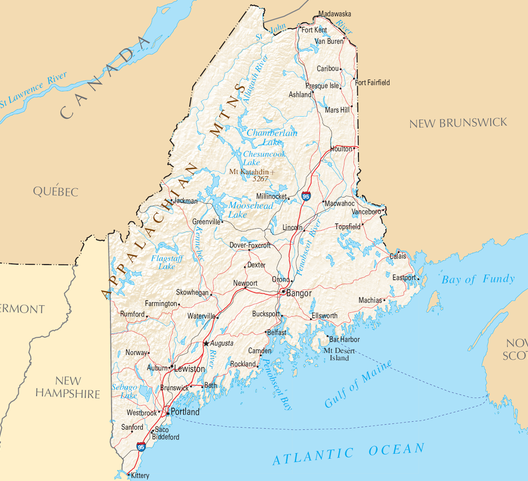Maine health authorities have reported a case of the relatively rare mosquito borne disease, Jamestown Canyon virus (JCV) in a mature adult from Kennebec County who had symptom onset in early June.

The case required hospitalization but the individual is recovering at home.
The case prompted the Maine Center for Disease Control and Prevention (Maine CDC) remind the public to be aware about arboviral diseases, including Eastern equine encephalitis (EEE), and West Nile virus (WNV), which are serious infections that are transmitted by the bite of an infected mosquito.
“This case reminds us all that mosquitoes are more than a nuisance, but they can also carry disease,” said State Epidemiologist, Dr. Siiri Bennett. “Prevention is key if Mainers are going to protect themselves from mosquito-borne diseases.”
Steps Mainers can take to protect themselves from mosquito bites include:
• Wear long sleeves and long pants
• Use an EPA approved repellent on skin and clothes – always follow the instructions on the label
• Take extra precautions at dusk and dawn
• Use screens on your windows and doors
• Drain artificial sources of standing water where you live, work, and play
The risk for being bitten by a mosquito is highest from dusk to dawn and when temperatures are above 50 degrees (and especially above 60 degrees). These are the conditions when mosquitoes are most actively biting.
JCV is distributed throughout temperate North America, where it circulates primarily between deer and various mosquito species. Despite its wide geographic range, only 15 human JCV infections were been reported in the United States from 2004 to 2009.
JCV infections initially were described in the early 1970s to cause a mild febrile illness in humans. Severe cases involving the Central Nervous System (CNS) may include meningitis (inflammation of the membranes surrounding the brain) or encephalitis (inflammation of the brain).
Related:
- Colombo dengue cases top 20,000, Vaccine requires more research
- Bats and human disease: There is still a lot to learn
- Mumbai state of health: Nearly 20 TB deaths a day, dengue cases way up
- Loblaw recalls chicken nuggets over Salmonella concerns
- Powassan virus case confirmed in Saratoga County
- San Diego reports 5th hepatitis A death, 70 percent of outbreak cases in homeless or illicit drug users

